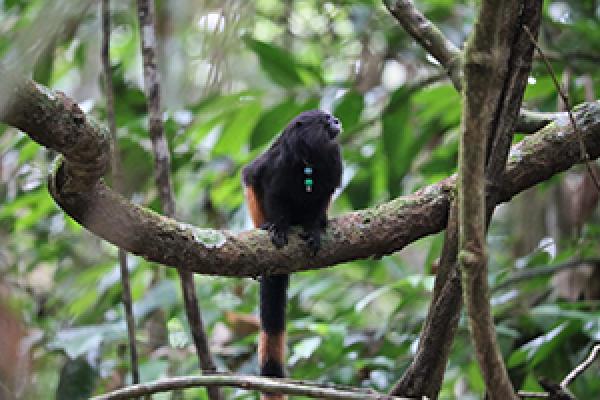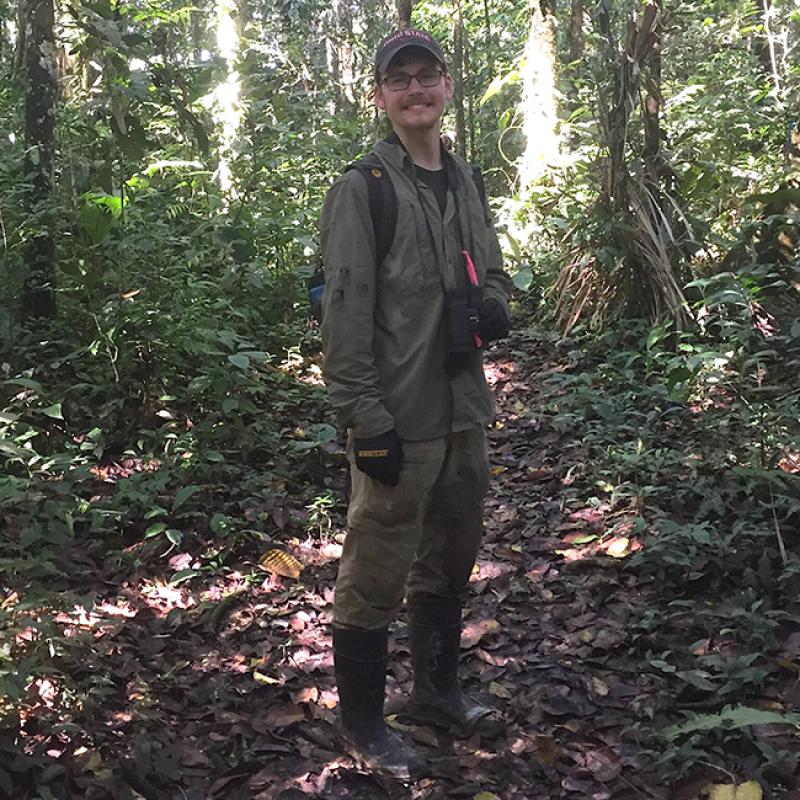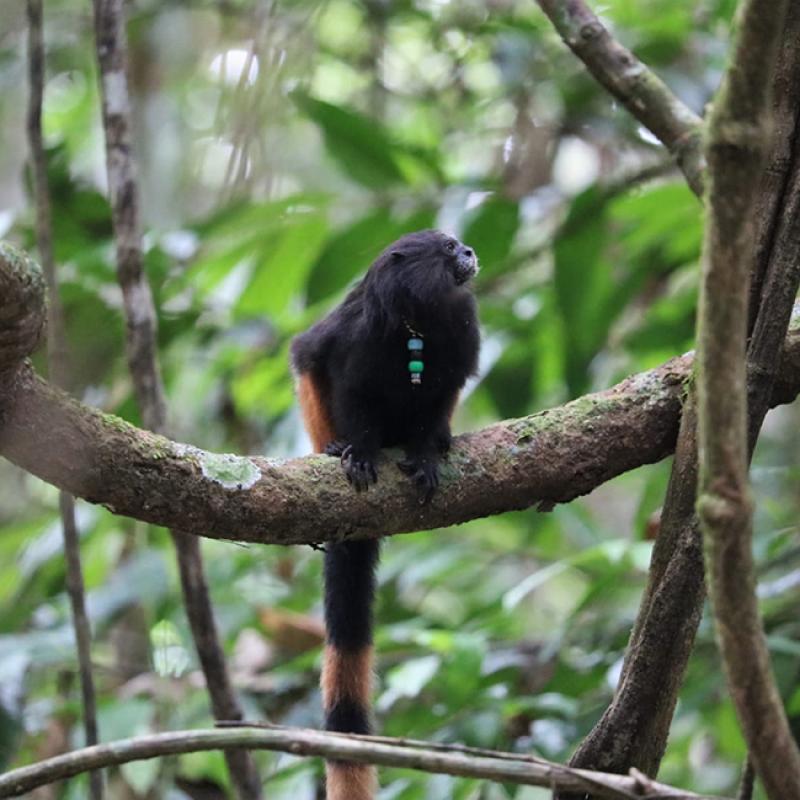Undergrad searches for answers in the Amazon

Luke Fannin’s passion for research has taken him far. The fourth-year zoology and anthropology student has spent his academic career searching for answers in labs at Ohio State, museums in major American cities and the far reaches of the Amazon rainforest.
As he made his way through the zoology major in the Department of Evolution, Ecology and Organismal Biology (EEOB), Fannin sought opportunities to get involved with research right away. He discovered the lab of Debbie Guatelli-Steinberg, professor in the Department of Anthropology, and was immediately enthusiastic about her research that aligned with his interest in physical anthropology, dental anatomy and non-human primates.

Fannin in the Amazon rainforest in southeastern Peru, where he has studied primate behavior.
From there, Fannin also joined the lab of Scott McGraw, professor of anthropology, and worked alongside him and Guatelli-Steinberg on projects relating the skeletal and dental anatomy of monkeys from the Taï Forest, Ivory Coast, to their behavior and feeding ecology. With the help of a Second-Year Transformational Experience Program (STEP) Fellowship, Fannin was able to further his interest in dental anthropology by visiting several museums around the country to collect data and take dental impressions of primate specimens for an independent project.
Fannin sees his participation in the Department of Anthropology as a natural pairing with his studies in zoology.
“I can use what I’ve been learning in my anthropology classes and couple that with primate ecology, evolution and anatomy to have this multidimensional approach to my research questions,” Fannin explained.
Fannin believes all of these experiences will help prepare him for the next step in his academic career: graduate school.
“The research experiences I’ve had at Ohio State, coupled with the background knowledge I’ve gotten from my classes in anthropology and EEOB, allow me to better interpret what other people have done,” he said. “Then, I can use the research experience I’ve gained in the field and in the lab to create new methodologies or improve the existing methodology, which I think is really the essence of graduate study.”
Fannin’s ambitious research goals have also taken him outside the U.S. For the past two summers, he’s worked as a research assistant with Field Projects International (FPI), a nonprofit research organization, to study the behavior of primates in the Peruvian Amazon. Located in a remote area in the Madre de Dios region of southeastern Peru, Fannin and FPI study the behavior of emperor and saddleback tamarins. These small, territorial primates travel in family groups throughout the study site and are tracked with radio collars to collect spatial, feeding and behavioral data. This data is just a small part of the larger project — which includes information on births, deaths, mating, migration, territories, health and disease prevalence — that is used by Field Projects International to understand the comprehensive ecology of this enigmatic and understudied species of Neotropical primates.

A wild tamarin, wearing a radio collar, perches on a branch in the rainforest. Photo by Claudia Rohr.
The project has been helpful in shaping Fannin’s research interests in primate evolutionary ecology and providing more context to his studies.
“You must go in with an interest in the ‘big picture’ and try to understand how your primates fit in to the larger mammal community and the entire ecosystem,” he said. “This invites further collaboration with other researchers who study other animals, which then makes your questions so much more detailed and your answers so much more thorough with respect to ecological interactions.”
This experience has also shown Fannin just how important it is to pair anthropology with ecology.
“Studying anthropology with ecology outlines how connected we are to the rest of the natural world,” he explained. “For example, when we’re out in the field, we are a part of the animal community. We can get ticks or parasites just like the animals we are studying. You are dwarfed by the vast number of bird species and encounter mammals ranging from peccaries to jaguars. You become part of the ecosystem, which also brings a responsibility to protect and study it.”
Fannin went on to explain that by re-examining our connections to these tropical ecosystems, anthropologists can make life better for both humans and animals.
In the field, you become part of the ecosystem, which also brings a responsibility to protect and study it," Fannin said.
“By understanding basic ecological needs that we all have, you can improve people’s lives and save environments,” he said. “I feel like both of those things can be compatible.”
Fannin credits the Department of Anthropology’s open and supportive environment with allowing him to tackle these big research questions as an undergraduate student.
“No matter if it’s research or student organizations, you’ll find graduate students and faculty in the Department of Anthropology who are willing to take you in and make you a better student and researcher,” he said. “By getting involved in the department, you’re joining a community that will really enrich your academic experience.”
